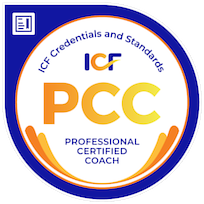Elevate your Leadership CompetenciesExecutive Coaching
Leadership today is more complex than ever before. Dynamic markets, digital transformation, hybrid, intercultural teams and demanding stakeholder management pose enormous challenges for managers, including
- You are expected to provide guidance even when conditions are constantly changing.
- You are expected to make decisions that are both economically viable and value-oriented.
- You are needed as a motivator, strategist, crisis manager, visionary – and as a human being.
In this field of tension, you need a place where you and your challenges are the centre of attention. A confidential, psychologically safe space where you can reflect honestly, gain clarity and develop solutions to your challenges. This is exactly what I offer you with executive coaching.
What is the Approach of Systemic Coaching?
In systemic coaching, we look at the whole system around the coachee. This means the coachee is considered part of a system, e.g. an organisation. Example: The coachee is part of a management team as well as a leader of a team. Depending on the issue, we work with the environment in the management team or as a team leader. Thus, the complex relationships between the coachee and the individual elements become visible, and we can work out possible solution scenarios to achieve the goal.
It becomes visible how the coachee's attitudes and behaviours influence their own environment and vice versa. This gives the coachee a comprehensive picture of the individual situation and enables them to solve it sustainably.
Example questions are:
- How can I successfully navigate transformations, change and all the situations and emotions that come with them?
- As a manager, how do I deal with the challenges of the transformed work environment? Keywords: remote working, new work, hybrid work.
- How do I improve my leadership skills?
- How can I successfully manage a role change, e.g. a promotion or a move to a new area or company?
- What does diversity mean for me as a executive? What are my tasks in the organisation and in the team?
- How do I build trust with my team as a leader?
- How do I handle difficult situations as a leader, e.g. review meetings or dismissals?
- How do I build up more stress resistance and resilience?
- Personal development: How do I grow faster into my new leadership role, e.g. after a promotion or after a job change?
- How do I deal with specific leadership issues?
- Women in leadership roles.
We utilize your individual strengths and talents to unfold your potentials. Based on these, we develop together individual strategies, to enable you to reach your goal.
With no other format is the issue addressed in such an individualised way. This is why coaching offers real added value, as employees grow in their role as well as personally and thus advance.
The advantages for you by a coaching according to ICF (International Coaching Federation) standards:
- A highly qualified coach who is required to re-accredit the credential every three years. .
- Due to the obligation of continuous further training, I am up-to-date with the relevant research in the field of coaching and leadership.
- Consequent self-commitment to the ICF values:
- Professionalism: A commitment to a coaching mindset and professional quality that encompasses responsibility, respect, integrity, competence, and excellence.
- Collaboration: A commitment to developing social connection and community building.
- Humanity: A commitment to being humane, kind, compassionate, and respectful towards others.
- Equity: A commitment to using a coaching mindset to explore and understand the needs of others so I can practice equitable processes at all times that create equality for all.
- Compliance with the ICF Code of Ethics:
- Agreements for Client and/or Sponsor Engagement.
- Confidentiality and Legal Compliance.
- Professional Conduct and Conflicts of Interest
- Commitment to Delivering Consistent Value
- Professional Integrity and Accountability.
The individual steps of the process:
- Getting to know each other ie. a chemistry check to see if we fit together.
- 1-on-1 individual sessions online or offline.
- Closing discussion.
